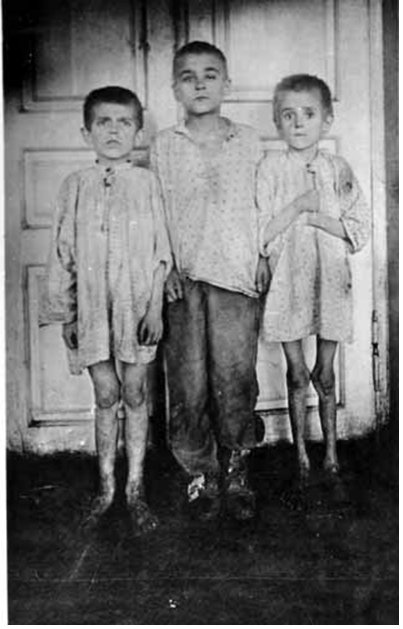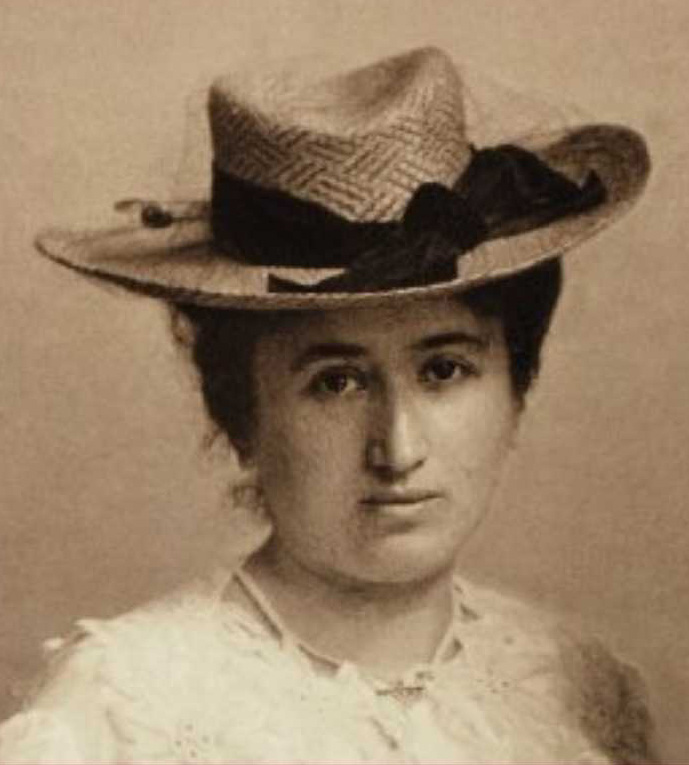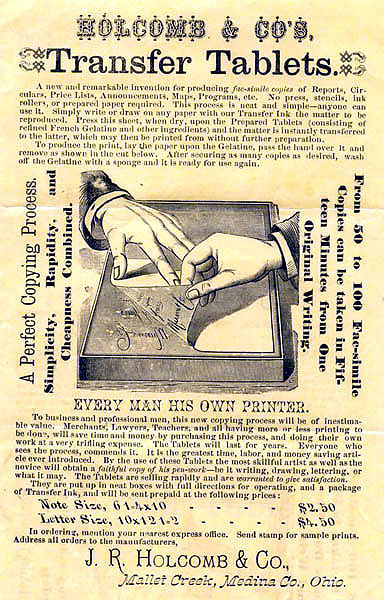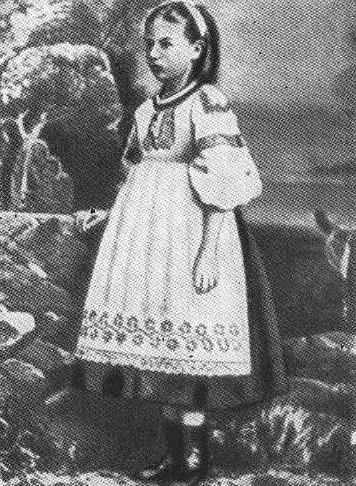|
Aleksandr Voronsky
Aleksandr Konstantinovich Voronsky (; – 13 August 1937) was a prominent humanist Marxist literary critic, theorist and editor of the 1920s, disfavored and purged in 1937 for his work with the Left Opposition and Leon Trotsky during and after the October Revolution. Voronsky's writings were hidden away in the Soviet Union, until his autobiography, ''Waters of Life and Death'', and anthology, ''Art as the Cognition of Life'' were translated and published in English. Early life Voronsky was born in the village of Khoroshavka in Tambov Governorate; his father was the village priest, Konstantin Osipovich Voronsky, who died when Aleksandr was a few years old. It is likely Voronsky was not the family name, but was taken up his father because his parish was located on the river Vorona. After attending a Tambov religious school, in 1900 he enrolled in the Tambov Seminary, where he helped organize an illegal library for the seminary students. In 1904 he joined the Bolshevik faction ... [...More Info...] [...Related Items...] OR: [Wikipedia] [Google] [Baidu] |
Ekaterinoslav
Dnipro is Ukraine's fourth-largest city, with about one million inhabitants. It is located in the eastern part of Ukraine, southeast of the Ukrainian capital Kyiv on the Dnieper River, Dnipro River, from which it takes its name. Dnipro is the Capital (political), administrative centre of Dnipropetrovsk Oblast. It hosts the administration of Dnipro urban hromada. Dnipro has a population of Archeological evidence suggests the site of the present city was settled by Cossacks, Cossack communities from at least 1524. Yekaterinoslav ("glory of Catherine") was established by decree of the Emperor of all the Russias, Russian Empress Catherine the Great in 1787 as the administrative center of Novorossiya Governorate, Novorossiya. From the end of the 19th century, the town attracted foreign capital and an international, multi-ethnic workforce exploiting Kryvbas iron ore and Donbas coal. Renamed Dnipropetrovsk in 1926 after the Ukrainian Communist Party of the Soviet Union, Communist ... [...More Info...] [...Related Items...] OR: [Wikipedia] [Google] [Baidu] |
Rosa Luxemburg
Rosa Luxemburg ( ; ; ; born Rozalia Luksenburg; 5 March 1871 – 15 January 1919) was a Polish and naturalised-German revolutionary and Marxist theorist. She was a key figure of the socialist movements in Poland and Germany in the early 20th century. Born to a Jewish family in Congress Poland, then part of the Russian Empire, Luxemburg became involved in radical politics at an early age via the Proletariat (party), Proletariat party, and fled to Switzerland in 1889. She helped found the Social Democracy of the Kingdom of Poland and Lithuania (SDKPiL) party in 1893, and in 1897 was awarded a Doctor of Law in political economy from the University of Zurich, becoming one of the first women in Europe to do so. In 1898, Luxemburg moved to Germany, and soon became a leading figure in the Social Democratic Party of Germany (SPD). Her political activities included teaching Marxist economics at the party's training school. Luxemburg was imprisoned several times, including in Germany ... [...More Info...] [...Related Items...] OR: [Wikipedia] [Google] [Baidu] |
Yevgeni Preobrazhensky
Yevgeni Alekseyevich Preobrazhensky ( rus, Евге́ний Алексе́евич Преображе́нский, p=jɪvˈɡʲenʲɪj ɐlʲɪkˈsʲejɪvʲɪtɕ prʲɪəbrɐˈʐɛnskʲɪj; – 13 February 1937) was a Russian revolutionary, Soviet politician, and Marxist economist. His main contribution to Marxist theory is the concept of " primitive socialist accumulation", which holds that industrialization in an underdeveloped and agrarian economy such as Russia's in 1917 must rely on the squeezing of agriculture, for example by the socialist state buying agricultural goods at low prices and selling back industrial goods at high prices. Preobrazhensky joined the Russian Social Democratic Labor Party in 1903, and after the establishment of Soviet Russia became a party secretary and member of the Central Committee in 1920. During the 1920s, he opposed Joseph Stalin's bureaucratization and centralization of the party and advocacy of " socialism in one country", becoming linked to ... [...More Info...] [...Related Items...] OR: [Wikipedia] [Google] [Baidu] |
Karl Radek
Karl Berngardovich Radek (; 31 October 1885 – 19 May 1939) was a revolutionary and writer active in the Polish and German social democratic movements before World War I and a Communist International leader in the Soviet Union after the Russian Revolution. Radek was born to a Jewish family in Lviv, Lemberg, Austria-Hungary. He joined the Social Democracy of the Kingdom of Poland and Lithuania and took part in the Russian Revolution of 1905, 1905 Russian Revolution in Congress Poland. Two years later he was forced to flee to Germany, where he worked as a journalist for the Social Democratic Party of Germany. After the outbreak of World War I, Radek relocated to Switzerland and became an associate of Vladimir Lenin. Following the February Revolution, Radek helped organize the return of Lenin and other Russian revolutionaries to Russia, though he himself was denied entry until after the October Revolution. As Vice-Commissar for Foreign Affairs, he took part in the negotiations of t ... [...More Info...] [...Related Items...] OR: [Wikipedia] [Google] [Baidu] |
Nikolai Bukharin
Nikolai Ivanovich Bukharin (; rus, Николай Иванович Бухарин, p=nʲɪkɐˈlaj ɪˈvanəvʲɪdʑ bʊˈxarʲɪn; – 15 March 1938) was a Russian revolutionary, Soviet politician, and Marxist theorist. A prominent Bolsheviks, Bolshevik described by Vladimir Lenin as a "most valuable and major theorist" of the Communist Party of the Soviet Union, Communist Party, Bukharin was active in the Soviet government from 1917 until his purge in 1937. Bukharin joined the Russian Social Democratic Labour Party in 1906, and studied economics at Moscow State University, Moscow Imperial University. In 1910, he was arrested and internally exiled to Onega, Russia, Onega, but the following year escaped abroad, where he met Lenin and Leon Trotsky and built his reputation with works such as ''Imperialism and World Economy'' (1915). After the February Revolution of 1917, Bukharin returned to Moscow and became a leading figure in the party, and after the October Revolution became ... [...More Info...] [...Related Items...] OR: [Wikipedia] [Google] [Baidu] |
Nadezhda Krupskaya
Nadezhda Konstantinovna Krupskaya ( rus, links=no, Надежда Константиновна Крупская, p=nɐˈdʲeʐdə kənstɐnʲˈtʲinəvnə ˈkrupskəjə; – 27 February 1939) was a Russian revolutionary, politician and political theorist. She was a leader of the Bolsheviks, Bolshevik party and was married to Vladimir Lenin. Krupskaya was born in Saint Petersburg to an Krupski, aristocratic family that had descended into poverty, and she developed strong views about improving the lives of the poor. She embraced Marxism and met Lenin at a Marxist discussion group in 1894. Both were arrested in 1896 for revolutionary activities and after Lenin was exiled to Siberia, Krupskaya was allowed to join him in 1898 on the condition that they marry. The two settled in Munich and then London after their exile, before briefly returning to Russia to take part in the 1905 Russian Revolution, Revolution of 1905. Following the Russian Revolution, 1917 Revolution, Krupskaya was ... [...More Info...] [...Related Items...] OR: [Wikipedia] [Google] [Baidu] |
Krasnaya Nov
''Krasnaya Nov'' () was a Soviet monthly literary magazine. History ''Krasnaya Nov'', the first Soviet "thick" literary magazine, was established in June 1921. In its first 7 years, under editor-in-chief Alexander Voronsky, it reached a circulation of 15,000 copies, publishing works of the leading Soviet authors, including Maxim Gorky, Vladimir Mayakovsky, and Sergey Yesenin, as well as essays on politics, economics, and science by authors like Lenin, Stepanov-Skvortsov, Bukharin, Frunze and Radek, among others. In 1927, Voronsky was condemned as a Trotskyist and fired. He was replaced first by an editorial board consisting of Vladimir Vasilyevsky, Vladimir Fritsche and Fyodor Raskolnikov (summer 1927–spring 1929), then chief editor Fyodor Raskolnikov (1929–1930), Ivan Bespalov (1930–1931), and Alexander Fadeyev (1931–1942), the latter bringing the circulation figures up to 45,000. In late 1941 the magazine was evacuated and in 1942 it closed for good. ''Krasna ... [...More Info...] [...Related Items...] OR: [Wikipedia] [Google] [Baidu] |
Thick Journal
In the history of journalism in Russia, thick journal or thick magazine (, ') was a type of literary magazine, regarded to be an important tradition originated in Russian Empire, continued through the times of the Soviet Union and into the modern Russia.Marc Raeff, ''Russia Abroad: A Cultural History of the Russian Emigration, 1919-1939'', , 1990pp. 85-86/ref> in: Светлана Яковлевна Махонина, ИСТОРИЯ РУССКОЙ ЖУРНАЛИСТИКИ НАЧАЛА XX ВЕКА, М.: Флинта: Наука, 2004Leonid P. Bykov The ‘Thick Journal’ in Russia:Yesterday, Today and Tomorrow ''Journal of Siberian ... [...More Info...] [...Related Items...] OR: [Wikipedia] [Google] [Baidu] |
Maxim Gorky
Alexei Maximovich Peshkov (; – 18 June 1936), popularly known as Maxim Gorky (; ), was a Russian and Soviet writer and proponent of socialism. He was nominated five times for the Nobel Prize in Literature. Before his success as an author, he travelled widely across the Russian Empire, changing jobs frequently; these experiences would later influence his writing. He associated with fellow Russian writers Leo Tolstoy and Anton Chekhov, both mentioned by Gorky in his memoirs. Gorky was active in the emerging Marxist socialist movement and later supported the Bolsheviks. He publicly opposed the Tsarist regime and for a time closely associated himself with Vladimir Lenin and Alexander Bogdanov's Bolshevik wing of the Russian Social Democratic Labour Party. During World War I, Gorky supported pacifism and internationalism and anti-war protests. For a significant part of his life, he was exiled from Russia and later the Soviet Union, being critical both of Tsarism and of ... [...More Info...] [...Related Items...] OR: [Wikipedia] [Google] [Baidu] |
5 Years Of Krasnaya Nov Soviet Monthly Literary Magazine
5 (five) is a number, numeral and digit. It is the natural number, and cardinal number, following 4 and preceding 6, and is a prime number. Humans, and many other animals, have 5 digits on their limbs. Mathematics 5 is a Fermat prime, a Mersenne prime exponent, as well as a Fibonacci number. 5 is the first congruent number, as well as the length of the hypotenuse of the smallest integer-sided right triangle, making part of the smallest Pythagorean triple ( 3, 4, 5). 5 is the first safe prime and the first good prime. 11 forms the first pair of sexy primes with 5. 5 is the second Fermat prime, of a total of five known Fermat primes. 5 is also the first of three known Wilson primes (5, 13, 563). Geometry A shape with five sides is called a pentagon. The pentagon is the first regular polygon that does not tile the plane with copies of itself. It is the largest face any of the five regular three-dimensional regular Platonic solid can have. A conic is det ... [...More Info...] [...Related Items...] OR: [Wikipedia] [Google] [Baidu] |
Mikhail Frunze
Mikhail Vasilyevich Frunze (; ; 2 February 1885 – 31 October 1925) was a Soviet revolutionary, politician, army officer and military theory, military theorist. Born to a Bessarabian father and a Russian mother in Russian Turkestan, Frunze attended the Peter the Great St. Petersburg Polytechnic University, Saint Petersburg Polytechnical University and became an active member of the Russian Social Democratic Labour Party (RSDLP). Following the RSDLP ideological split, he sided with Vladimir Lenin's Bolsheviks, Bolshevik faction. He led the textile workers strike in Ivanovo during the Russian Revolution of 1905, 1905 Russian Revolution, for which he was later sentenced to death before being commuted to life-long Penal labour, hard labour in Siberia. He escaped ten years later and took active part in the 1917 February Revolution in Minsk and the October Revolution in Moscow. Frunze distinguished himself as one of the most successful Red Army commanders during the Russian Civil War ... [...More Info...] [...Related Items...] OR: [Wikipedia] [Google] [Baidu] |









